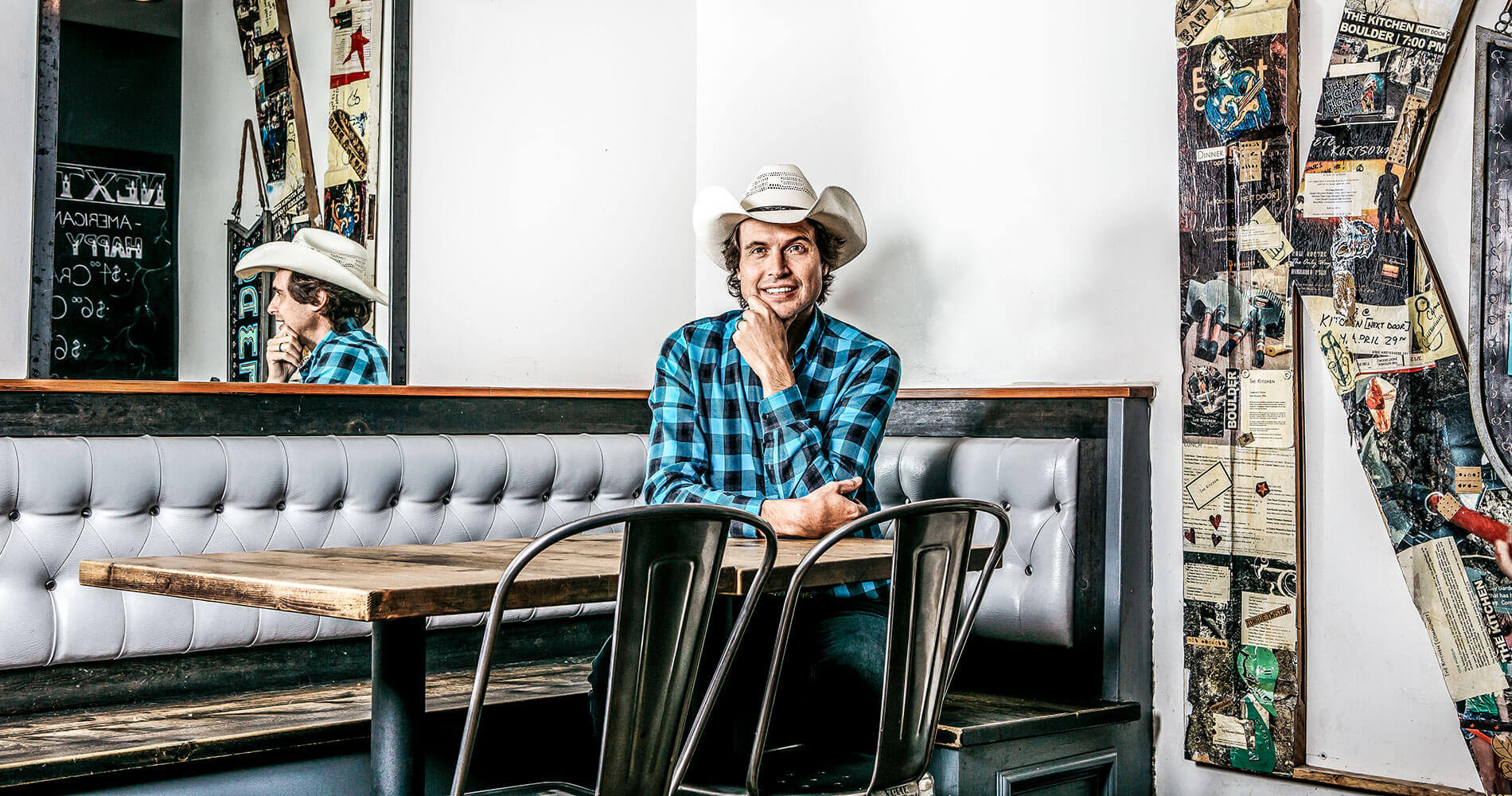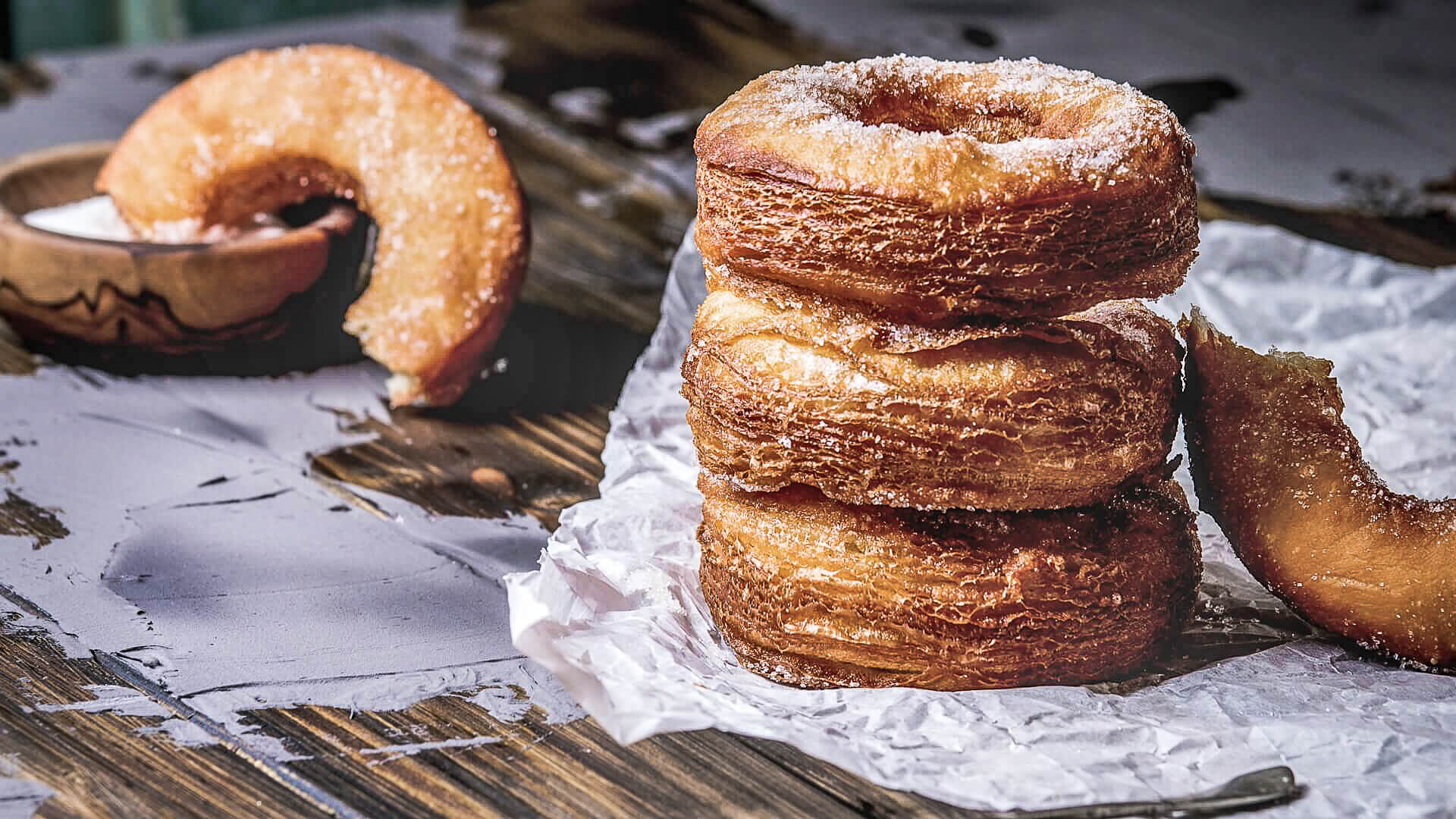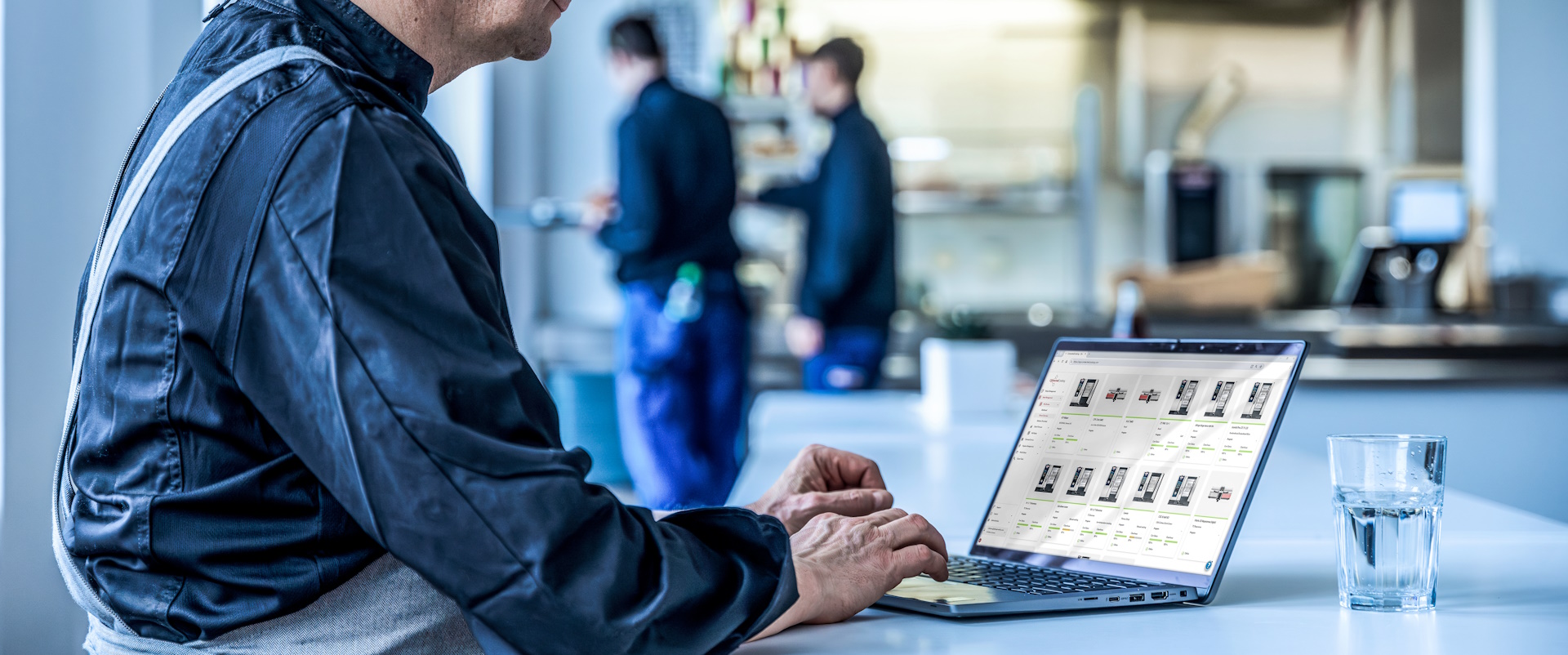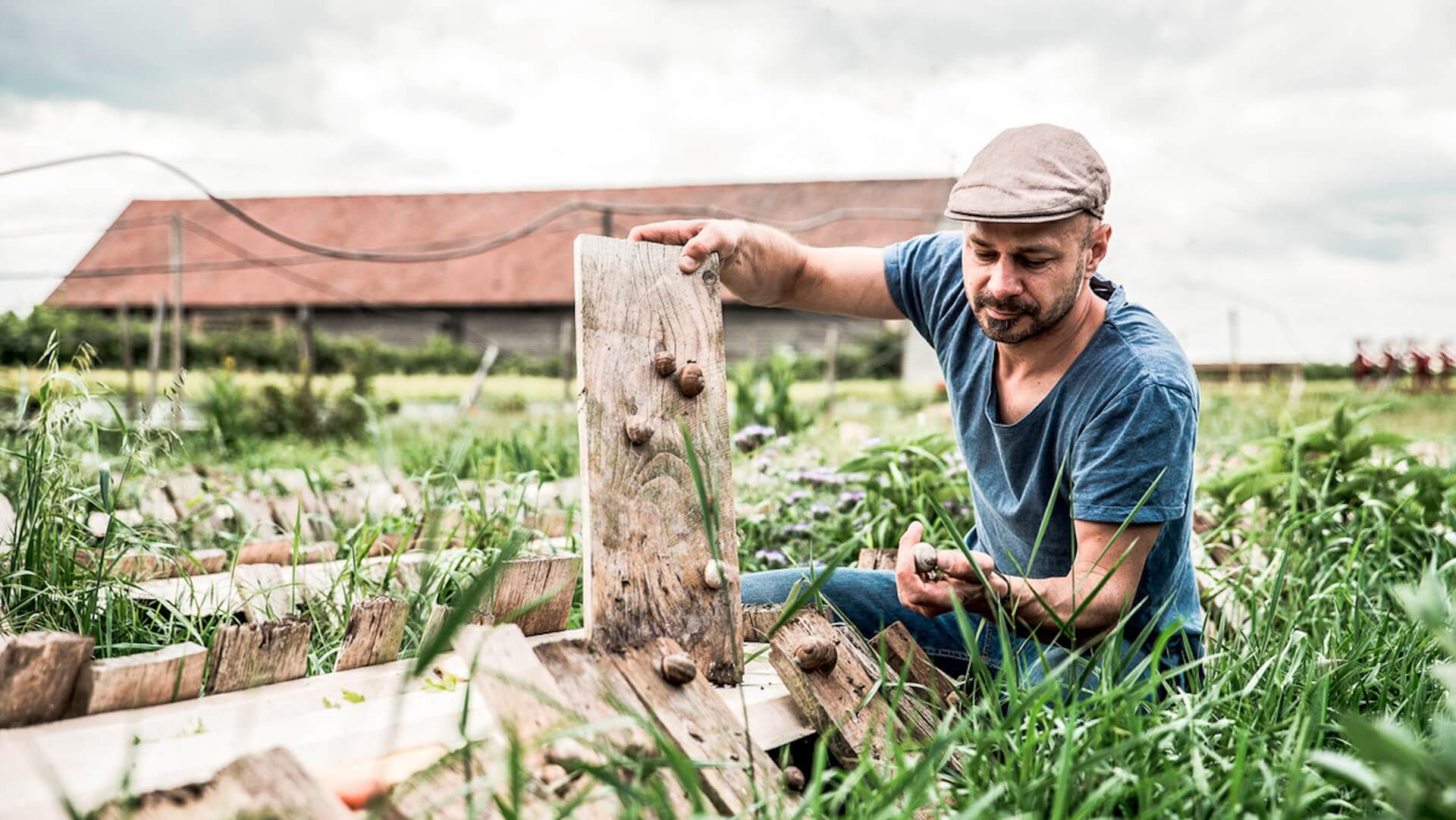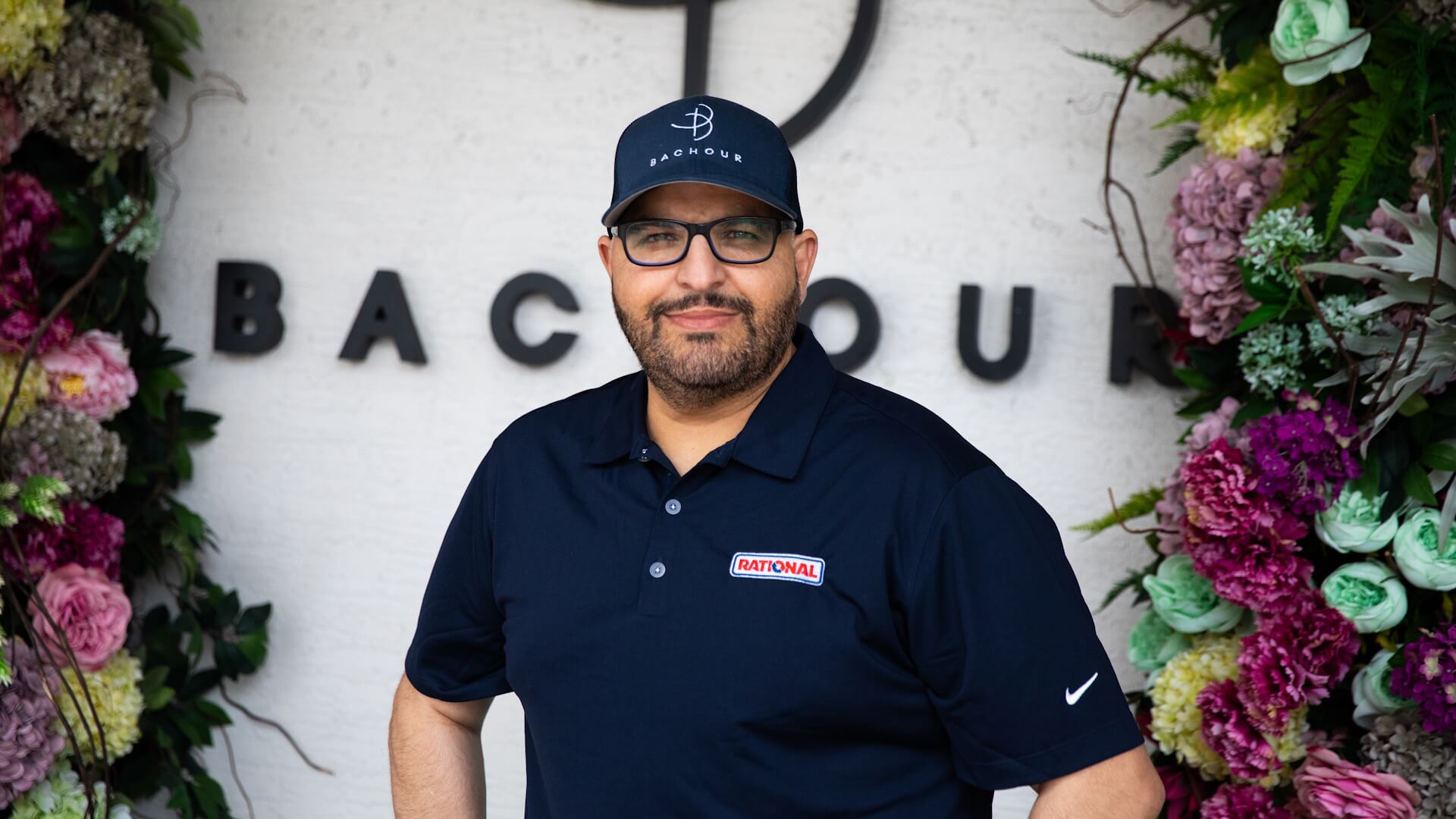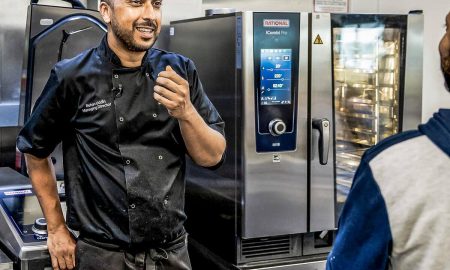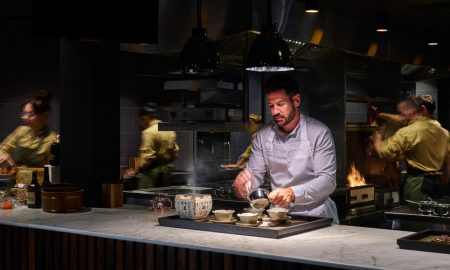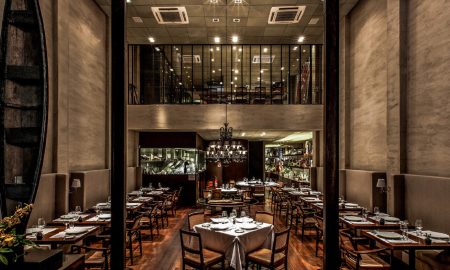At home in two worlds
Considering his background, the combination isn’t surprising: Kimbal is the son of a dietitian and an engineer. After completing a business degree, he developed an interest in the Internet and digital technologies back in the 1990s — partly because they were cool, partly because they were a good opportunity to make a lot of money quickly. The Musk brothers’ first digital-world project, an online city guide called Zip2, showed them that they were on the right track: they eventually sold the company to Compaq for more than $300 million. After that, Kimbal attended culinary school in New York, which changed his entire perspective on the world and made him realize that future generations’ greatest hope lay not in digitization, but in healthy nutrition. He sensed an opportunity to bring the two, seemingly opposing, pillars of his childhood together: why not use modern technology to make delicious, healthy food? Today, when it comes to using advanced technologies like combi-steamers for his purposes, Kimbal Musk’s virtuosity is practically unmatched. And he’s a true believer in their potential, especially for commercial kitchens.
Cauliflower as a driver of innovation
His favorite example: cauliflower. Kids in the Musk household grew up eating a lot of it — their mother was a nutrition expert, after all. Unfortunately, cooking wasn’t one of her strengths, and the family still associates “cauliflower” with “inedible”. Mama Musk’s cauliflower was sometimes half-raw, sometimes cooked to oblivion, but never the way cauliflower is supposed to be. Nowadays, of course, Kimbal knows how to get cauliflower to just the right level of doneness, with a hint of caramelization. The conventional method is to start by boiling the cauliflower, then bake it at a low temperature so that the liquid can evaporate and the sugar can caramelize, and then finish it by sautéing it to a golden brown. It’s a complicated process, and doing it consistently takes the skill and experience of a two-star chef… who, alas, don’t exactly grow on trees. Enter the modern method: digitization with the help of a combi-steamer. Musk programmed his recipe into his own combi-steamer, adjusting and readjusting the recipe one step at a time until he hit upon the perfect process. Today, Musk can teach an eighteen-year-old kitchen assistant to make Michelin-star-worthy cauliflower in under an hour. The best part? After learning the process, the kitchen assistant can turn out identical, perfect batches again and again. It’s all part of the program. Customers are happy, Kimbal’s happy, everyone’s happy.
Kimbal Musk, repeat offender
“Again and again” has become a kind of buzzword in Kimbal Musk’s world. Over the years, he’s built up something of a food empire in the United States. He started with The Kitchen, a meeting point for people who want to chat somewhere besides Facebook, Twitter, or Instagram. Its higher-end regional cuisine certainly gives customers plenty to talk about. (For example, the local farmers who deliver the cauliflower. And everything else.) Soon after that, he started Next Door, a place for people who want their food fast but still tasty. Here, too, the ingredients are from regional farms, but service is so quick that the food is sometimes ready before the ticket has been tacked up in the kitchen. Kimbal is disrupting the casual-dining world, turning quick service on its head by bringing speed and flavor together in what he calls an “urban casual” dining experience. In other words, he’s making quick service healthy again. And it’s affordable, too: the average bill at Next Door comes out to $16, including drinks.
Be there before others get there
The locations he chooses are “disruptive” in a way as well. His restaurant concepts would probably find plenty of fans in New York or San Francisco, but The Kitchen and Next Door are staunch denizens of Middle America: Denver, Pittsburgh, Chicago, Memphis. In Kimbal Musk’s view, that’s the most neglected part of the country in terms of quality food— hence his ambitious plan to open fifty Next Door locations throughout the Midwest by 2020. Musk has a talent for sniffing out gaps in the market, as he’s proven more than a few times already.
The challenge remains
The farms deliver different types of vegetables every day, often of varying quality… but Musk has promised that his food will always taste great, and he has to find a way to keep that promise, no matter what. Which is another reason he swears by combi-steamers, which one of his cooks discovered while traveling to Germany. Apart from the fact that they appeal to his inner geek, Kimbal likes combi-steamers because he can use the same programs on every appliance. One program for all the cauliflower. For all the carrots. The steak. The fries. If he wants to change a program, he can do it from his living room couch, just by opening the ConnectedCooking app on his smartphone. That’s cooking in the digital age. It doesn’t just provide uniform food quality, it speeds up kitchen operations. And that’s exactly what customers want: good food, served fast.


